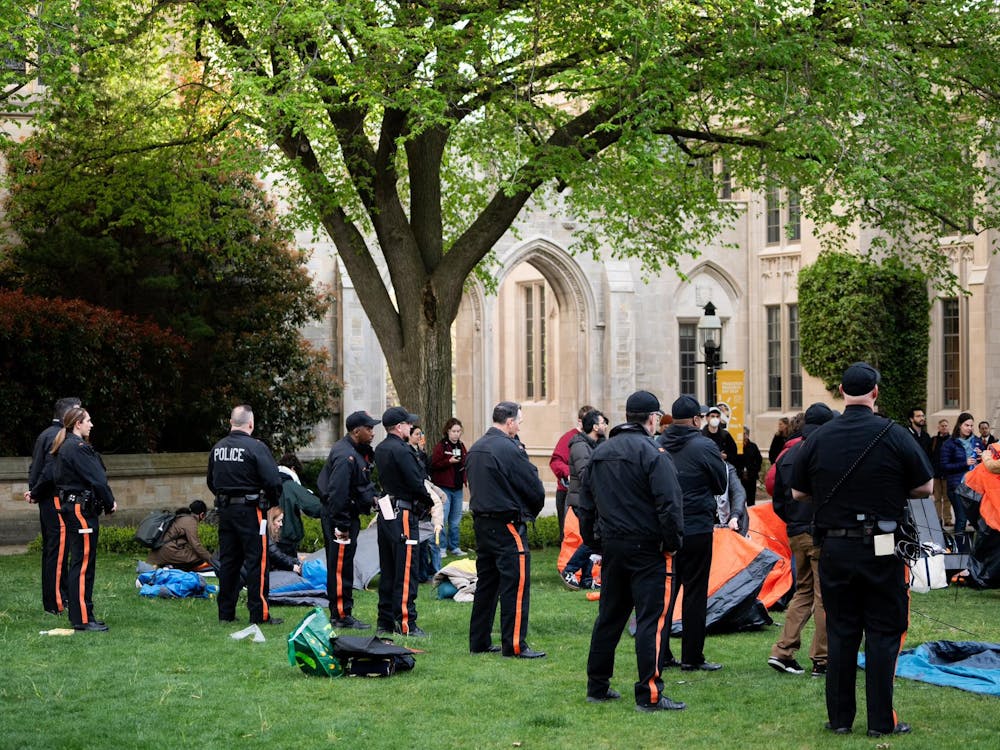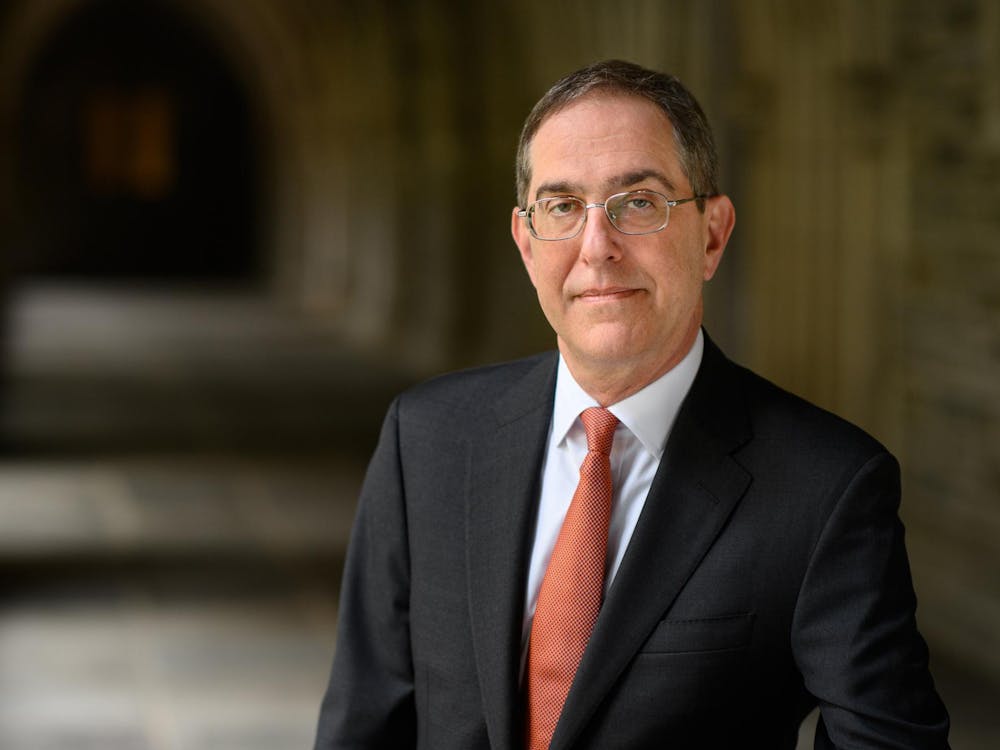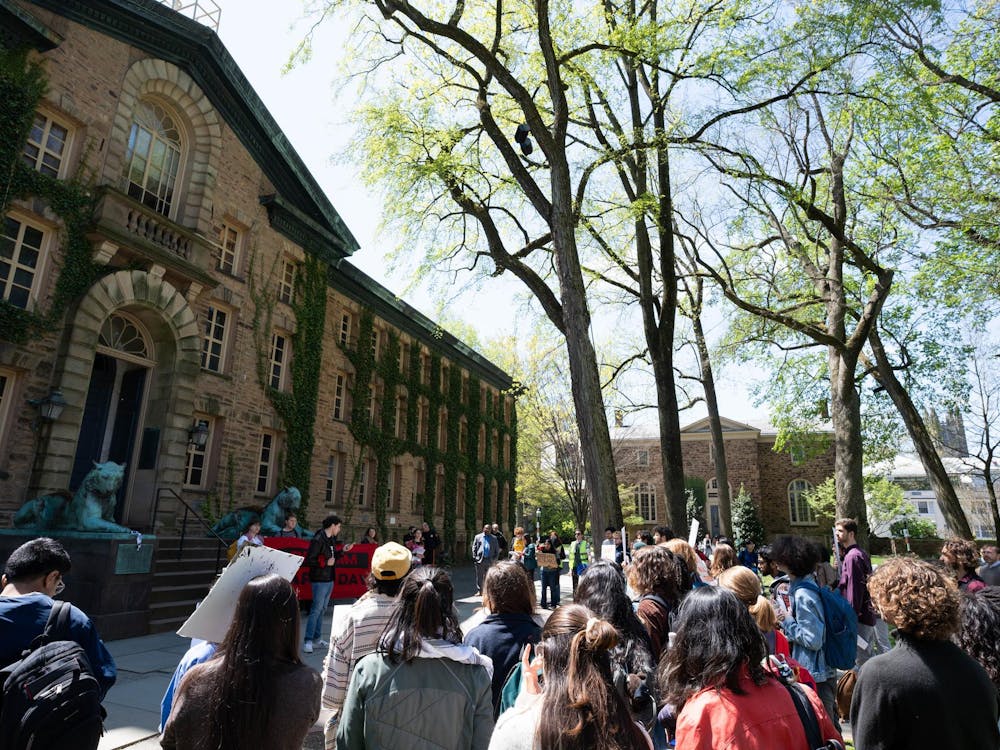Over Thanksgiving break, my best friend Jeff’s father died. Just two weeks earlier, Jeff’s father was initially diagnosed with stage 4 inoperable kidney cancer. With his mother having passed away a little over a year ago and without any siblings, Jeff, who is only 19, has suddenly been left more alone than anyone else I know. Jeff has suffered, and is suffering, in ways few of us will ever know. I can’t pretend to understand Jeff’s suffering and I felt powerless to help. All I could do was sit and listen to my friend in pain.
But perhaps just being there is more effective than I realized. Henri Nouwen once wrote that our best friends are the ones who“instead of giving advice, solutions, or cures […] can be silent with us in a moment of despair or confusion, who can stay with us in an hour of grief and bereavement.” Recognizing and acknowledging another’s pains, sorrows and difficulties can be the most difficult work in a friendship. Those who have gone to psychological services know that the majority of a psychologist’s time is simply spent listening to and validating feelings. Humans have an incredible ability to empathize and commiserate.
On the University’s campus, on every campus, in every household and street in America and around the world, there are a lot of difficulties and struggles. There are long days and dark nights. While we all bear different burdens, we do, in some sense, share in the experience of suffering. While we will never truly know or fully understand the experience of another’s suffering, we do all share in this “fallen” state of things. If we took the suffering of our peers seriously, then maybe many similar problems on this campus would be resolved by now.
The University campus in particular would be a lot more unified, uplifting and supportive if individual students, faculty and administration took more seriously not only their opponents’ arguments but also their sufferings. President Eisgruber embodied this ideal of commiseration and solidarity with how he handled the Black Justice League’s “Occupy Nassau” protest. In his letter to the student body following the end of the protest, President Eisgruber, acknowledging the pain and suffering some African Americans across campus were feeling, wrote “I have heard compelling testimony from students of color about the distress, pain and frustration that is caused by a campus climate that they too often find unwelcoming or uncaring,” nothing that such feelings could be “heightened or exacerbated by exchanges, frequently anonymous, on social media.”
Eisgruber did not engage in debate; he simply extended an olive branch, doing his best to show he was an advocate for all students while assuring the BJL that he would do his best to combat the causes of their suffering. He wrote, “I care deeply about what our students are saying to us, and I am determined to do whatever I can…to improve the climate on this campus so that all students are respected, valued, and supported as members of a vibrant and diverse learning community.”
Eisgruber refrained from questioning or doubting the causes of the offenses, and instead focused on the validity and importance of the students’ pain. In his letter, he focused on why students were currently suffering and tried to be there for them. Rather than just blindly reacting to the protests and following the demands in the hope that the pain would subside, Eisgruber has opened his office to students of any opinion, ready to listen to their concerns.
Of course, we must do our part to mend the world’s problems. The debate over the removal of Woodrow Wilson’s name can and should continue, but let’s not forget what we can do now — stand alongside one another, sharing and bearing each other’s burdens in the process. We should not become so obsessed with the demands that we lose sight of the pain people are feeling right now, in the present. In order to counteract the sources and causes of each other’s suffering, often the biggest service we can do for others is the one we neglect most, simply listening and being a friend.
This is also true outside the BJL situation in everyday life circumstances. When we get hosed from eating clubs next month, we can tirade against the system or we can commiserate with one another in the process. When we see someone get hurt by a racist, sexist or homophobic slur, certainly the culprit deserves to be reprimanded, but perhaps our energies are better spent comforting the victim. As the world’s attention turns from mourning with the Parisians to blaming Islam as a whole, we can continue to follow up with those who we know were affected, French and Muslim alike.
Change may take a long time, but we must not forget what we can do to help right now, asking and listening and being there with others through their suffering right now.
Luke Gamble is a sophomore from Eagle, Idaho. He can be reached at ljgamble@princeton.edu.









